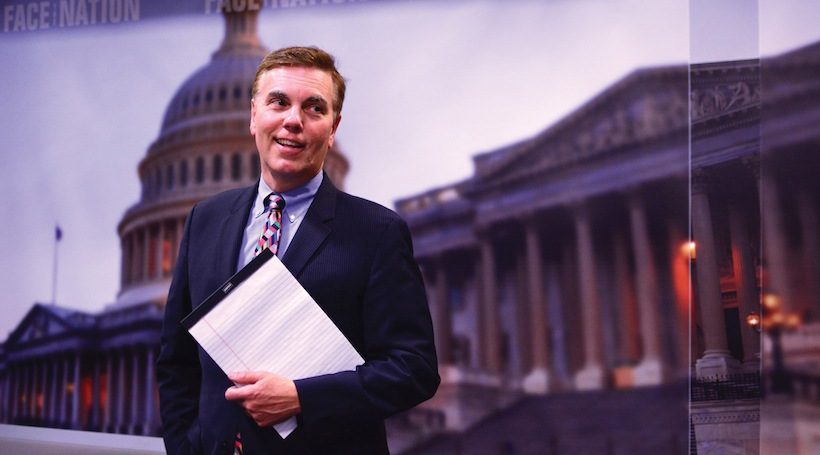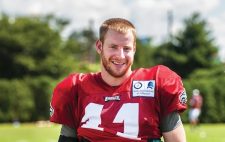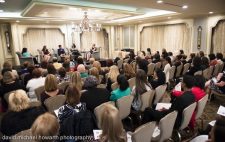Journalist Dan Raviv has made a career of telling stories – of spies, peace talks, assassinations, even the wedding of a prince and princess. His decades of intriguing work has resulted in five books, and this month, the newsman brings his stories to the Katz JCC Festival of Arts, Books and Culture.
Of all the presidents, prime ministers and regular people Raviv has interviewed, he says his favorite was Margaret Thatcher, who he interviewed during his 12-year stint working in London for CBS. While there, he covered Prince Charles and Lady Diana’s wedding, divorce and ultimately her funeral. He was also there for Thatcher’s political rise and fall.
“She had decided she wanted to give interviews to the American news networks before she headed to Washington,” says Raviv, 62. “I was thrilled to prepare and ask her tough questions like, ‘Is it true you’re beginning to lose power and your touch? Is the conservative party giving up on you?’ She was the strongest but most eloquent responder to any such questions. It was just my chair facing her chair, and she knew everything about Eastern Europe and communism.”
His proven expertise, however, lies with the Middle East. His longstanding coverage there has established him as CBS’ go-to reporter for news of the region.
“In November of ’77, Anwar Sadat, president of Egypt, visited Israel, which was incredible – a big breakthrough. The biggest Arab country was interested in making peace with Israel, so CBS decided to beef up the Tel Aviv bureau,” says Raviv, the son of two Israelis who spoke Hebrew. “For a relocation budget of $679 – the cost of a one-way ticket on El Al – CBS had its latest foreign correspondent added to the Tel Aviv bureau. At age 23, I had some pretty great experiences for a budding journalist.”
Raviv was in Jordan when Israel’s Prime Minister Yitzhak Rabin and King Hussein signed the 1994 peace treaty, and he attended Anwar Sadat’s and Yitzhak Rabin’s funerals.
“I have invested my time and energy in understanding the Middle East very well,” he says, “so when a momentous event occurs, whether it’s terrorism or a peace treaty or assassination, I feel ready to explain it, to go there, to listen to the local people because I know Hebrew very well and Arabic to some degree.”
Raviv’s domestic coverage includes the O.J. Simpson trial and the Monica Lewinsky scandal, as well as 9/11. He was the only reporter on duty at CBS Radio in Washington when the first plane
hit.
“I saw what we believed was an accident, that there was a hole in one of the World Trade Center towers, and obviously an airplane had hit it,” says Raviv. “We went on the air at 8:51 am, just a few minutes after the plane hit. The reports were from eyewitnesses, me describing what we could see on the various TV screens and what the helicopter reporter of WCBS radio in New York was seeing as he flew around.”
“Of course, the shock for all of us was when we saw a second plane hit the other tower at 9:03 am. I calmly told the audience this could not be an accident; it had to be terrorism. My job as the anchorman was to be the fellow in the middle, constantly going out to various people that my producers were lining up on the phone, CBS correspondents headed downtown and on the scene, some of my colleagues who were running away from the Twin Towers as first one, and then the other, collapsed.”
Raviv’s goal was to remain composed through false reports of car bombs going off in Washington and confirmed reports of the Pentagon being hit and the fourth plane going down in Pennsylvania. He remained on the air for more than 8 hours.
“I pride myself on staying calm and delivering the facts as we knew them, trying to be reassuring without hyping anything,” he says. “When another anchor replaced me at 5 pm, that’s when I was off and could mentally collapse, physically collapse and head home to my children, who at the time were 16 and 13. Only then was everything striking me, because I had described the violent deaths of thousands of people and the destruction of two iconic buildings in New York City, a city I knew so well as somebody who had grown up in Long Island.”
Despite his long career interviewing many notable people, Raviv does have a bucket list of interviews he’d like to get. First on the list? Pope Francis.
“Popes are really hard, they don’t usually sit down for a real interview,” Raviv says. “I wish I could have a substantive interview with Pope Francis. Even as a Jewish boy from Great Neck, Long Island, I’m very interested in the Catholic church.”
Today, Raviv can be heard on CBS Radio covering the election. Though he sometimes appears on CBS television news, most of his reporting is on radio, which he loves.
“I love live radio because there’s no script,” he says.
“In TV you don’t have to say as much because the pictures tell the story. You don’t have pictures, so you just describe what’s going on. You give a lot of information but color, as well. You get to describe things as carefully as you can, using words to bring listeners to that place.”
Dan Raviv will speak at The Katz JCC Festival of Arts, Books and Culture in Cherry Hill on Sunday, November 13 at 7 pm.














